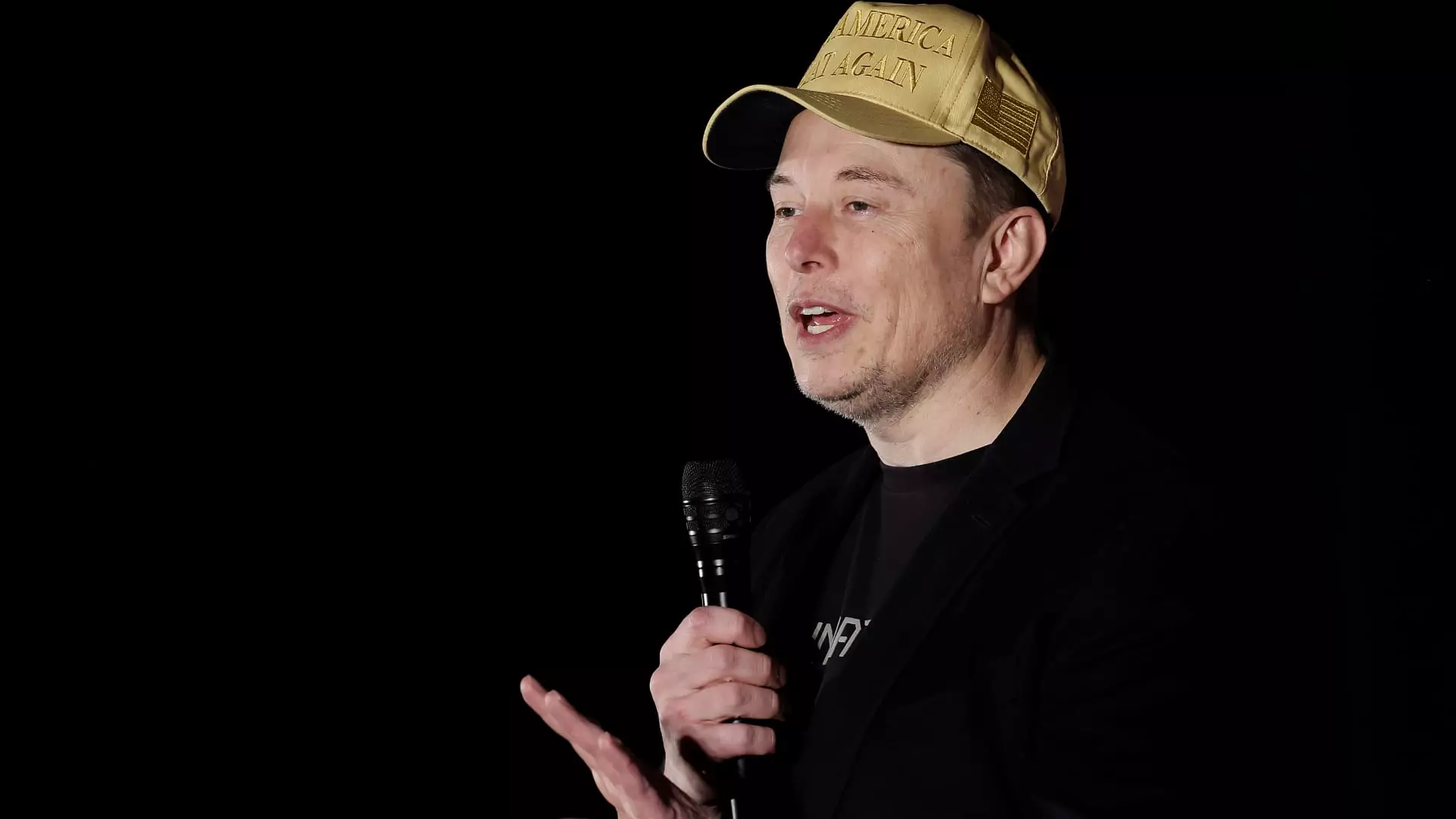In a striking move that blends philanthropy with political ambition, billionaire entrepreneur Elon Musk declared his intent to donate $1 million a day until the upcoming November election. This pledge is contingent upon individuals signing his online petition advocating for the U.S. Constitution, specifically emphasizing the First and Second Amendments. This initiative not only raises eyebrows regarding the ethical implications of wealth in politics but also reflects a significant shift in Musk’s public engagements, notably his alignment with Republican candidate Donald Trump.
During an event in Pennsylvania, Musk promptly awarded the first million-dollar check to attendee John Dreher, illustrating a direct and personal approach to his political strategy. Dreher’s surprise highlights Musk’s dramatic style of engagement, which, while entertaining, also serves to capture attention for the political cause Musk is championing. Critics argue that such financial incentives could sway public opinion unethically, showcasing how billionaire influence can distort democratic processes.
Musk founded America PAC to bolster Trump’s campaign, aiming to mobilize voters in critical battleground states. However, early indications suggest challenges in achieving its voter registration goals, raising questions about the effectiveness of relying heavily on a single wealthy benefactor. The PAC’s activities are particularly significant given Musk’s wealth, reported by Forbes as the highest in the world. With contributions surpassing $75 million, America PAC could be pivotal in Trump’s quest to reclaim the presidency.
Musk’s overtly partisan stance has further polarized his public persona. By framing the election as a struggle for the very essence of the U.S., he has adopted a tone reminiscent of apocalyptic rhetoric. His warning that a win for Democratic candidate Kamala Harris would potentially signify “the last election” hearkens to a concept of imminent peril that may resonate with certain voter segments but appears extreme to a broader audience.
Musk has not shied away from making inflammatory statements, including controversial comments regarding assassination attempts against Trump, suggesting they symbolize a fundamental threat to the political status quo. By this logic, he asserts that Harris, not facing equivalent threats, lacks significant political substance. Such rhetoric not only escalates the political rhetoric but also raises ethical concerns about the role of public figures in amplifying national tensions.
Moreover, the petition tied to Musk’s campaign—focused on upholding freedoms guaranteed by the Constitution—serves a dual purpose. While it ostensibly champions civil liberties, it also facilitates data collection for America PAC, enhancing its ability to reach and mobilize potential voters. This intersection of advocacy and strategic voter engagement reflects a trend wherein financial and political interests intertwine, setting a precedent that could shape future discourse in American political campaigns.
Elon Musk’s involvement in the political arena is emblematic of a broader trend where affluent individuals leverage their resources to influence electoral outcomes. While the funds raised and distributed through initiatives like America PAC can energize voter bases and reshape campaign strategies, they also invite scrutiny regarding the fundamental integrity of democratic processes. As billionaires like Musk become increasingly vocal and engaged in politics, the implications for the future of campaign finance and political representation warrant serious consideration. The coming election may not only determine presidential fortunes but also set critical precedents for the intersection of wealth and politics in America.


Leave a Reply